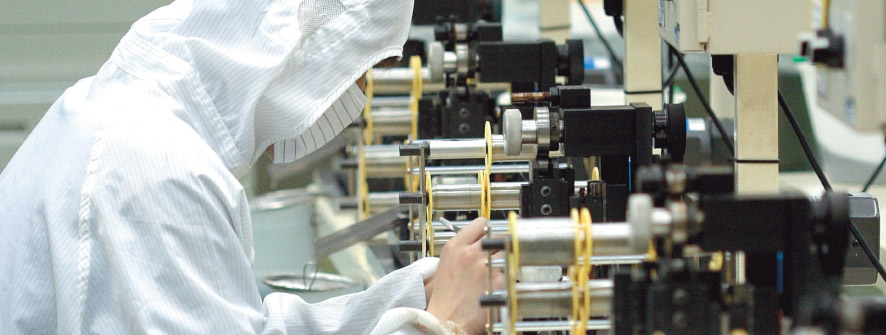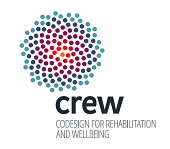CariploCREW


CariploCREW
cariploCREW, Codesign for REhabilitation and Wellbeing, is a Fondazione Cariplo action supporting research and development of innovative technology solutions for the rehabilitation and more generally the wellbeing of people with permanent or temporary disabilities or aging-related problems.
cariploCREW efforts are grounded in the principles of Responsible Research and Innovation (RRI) hence supporting research and innovation that is inclusive and meets social needs.
From 2015 to-date, cariploCREW has entailed
- the cariploCREW project and
- a cariploCREW Call.
The cariploCREW project
cariploCREW is a project promoting and supporting research, development and deployment of technology solutions that improve quality of life for people with disabling conditions, their family and caregivers.
The project has adopted a multi-disciplinary and integrated approach combining technology and medical knowledge with insights from psychological and social sciences for an all-around view of issues.
At every step of the way, solutions have been co-designed and co-planned to accelerate their development and bring them more quickly to the market hence more readily available to satisfy the needs of the individuals they were developed for.
The method of the cariploCREW project
Guidance for the project is provided by a Steering Committee made up of members from Fondazione Cariplo and from Triwù, the company responsible for facilitating the activities of the project working groups, and for internal and external communications in relation to the project. Validation of the project method and project progress monitoring are responsibilities entrusted to the project Advisory Board whose members include Luca Leone (Cattolica del Sacro Cuore University), Matilde Leonardi (Carlo Besta Neurological Institute – hospital and research center) and Franco Molteni (Valduce Villa Beretta Hospital).
Project activities have been focused on five different areas, i.e. those of the project proposals judged to be most promising:
- Pediatric neuromotor disorders
- Disabilities and physical activity
- Autism spectrum disorders and inclusive education
- Spaces for living independently
- Spaces to remain independent while aging
Thematic groups were formed, one in each area. Each thematic group consists of members representing all stakeholders, i.e.:
- Businesses and startups
- Formal and informal education and training organizations
- Civil society and third sector organizations
- Researchers and clinicians
- Policy-makers
The members of each thematic group have worked together to find and co-design solutions that would meet the needs of final users.
The steps of the cariploCREW project
The project is still ongoing and has entailed the following steps:
In Step 0 (June 2014 to March 2015) the Steering Board identified the areas of focus as well as the stakeholders and then worked to bring them onboard.
In Step 1 (March to December 2015), the five thematic groups were created and started their work that yielded eight concepts. Each concept was then detailed in plan for the creation of a prototype which was funded by Fondazione Cariplo. The members of the thematic groups have worked on the project pro bono and have given Fondazione Cariplo intellectual property rights over their creations.
In Step 2 (in 2016), Business Plans were prepared for the development of the concept into a prototype and then into a final product. This work was handled by Fondazione Filarete.
The eight concepts were then submitted to the Evaluation panel that gave the green light to six of them to move on to the prototyping stage.
Step 3 is ongoing and involves work to create the six prototypes, namely:
CAMBIO, an affordable wheelchair that thanks to its features makes it easier for users to enjoy life outdoors and play sports to stay active.
AQTIVO, a floating and swimming aid for people with disabilities to help them enjoy the pleasure of independence in the water; it can also be used for rehabilitation.
MOSAIC, a multimedia kit for children with autism spectrum disorders starting primary school, the first important occasion for them to socialize.
GIOCABILE (playable), a game for children with neuromotor disorders helping them enhance their skills by playing and having fun with family and friends.
BABY CREW, a functional, modular seat helping children with neuromotor disorders keep posture. Thanks to its accurate modular design, the seat can be adjusted as children grow up and facilitate their enjoyment of family life.
Before moving on to the industrial and marketing phases, an agreement will be made between Fondazione Cariplo, the participants in the previous steps of the projects and the businesses involved in the project to ensure the product/service developed under the cariploCREW project remains in line with the innovativeness, the ethical principles and the participatory approach of the project. The first of these agreements was made in February 2021 with the MOSAIC working group following conclusion of the testing phase.
Assessment of the cariploCREW project so far
From 2014 to-date, the Responsible Research and Innovation approach has been adopted in many projects funded by public and private entities and involving researchers and businesses. Involving final users and citizens is almost a necessity in the numerous situations when choices are to be made, changes adopted or when taking decisions that have an impact on society.
Organizing CREW has been complex for the difficulty of bringing together “stronger” (universities, Italy’s National Research Council, Fondazione Cariplo itself) and “weaker” parties (associations, private individuals, professionals) with different missions, interests, legal status and organization, and finding a common ground in contractual arrangements relating to funding, IP and earnings reinvestment.
The stakeholders - many involved in the project since Step 1 - have judged positively their participation in the project, the sharing of knowledge and experience, the composition of the working groups, and have appreciated the experimental and pioneering spirit of the CREW project. This is what emerged from a survey conducted to get the opinion of participants.
cariploCREW project participants
Business and startups
AB Medica Spa, Arduini Design, Milan; Cris Srl, Turin; Fifth Ingenium, Milan; Fumagalli Srl, Ponte Lambro (Como); Legrand Group I-maginary Srl, Milan; RAI (Italian broadcasting corporation) Turin office; Road Runner Foot Engineering srl, Milan; We Make, Milan.
Formal and informal education and training organizations
Villasanta school (nursery to high school), Villasanta (Monza e Brianza); Scuola di Robotica (promoting robotics education), Genoa; TEACHC (Treatment and Education of Autistic and Communication Handicapped Children), Milan.
Civil society and third sector organizations
Associazione Bambini Cerebrolesi Lombardia (support group for families with children with cerebral palsy), Milan; ANCeSCAO (nonprofit association providing services for the elderly), Milan, Angsa (national support group for families with autistic children) Milan; Associazione Unità Spinale Niguarda Onlus (support group for Niguarda Hospital Spinal injuries unit patients), Milan; Fabula Onlus (social cooperative providing education and psychological support for people with disabilities and autism spectrum disorders, their families and teachers) Milan, Fondazione ASPHI Onlus (nonprofit supporting technology that makes life easier for people with disabilities) Bologna; Fight the Stroke (group helping children who survived a stroke and live with cerebral palsy and their families), Milan; Parole Tue (group of speech therapists) Milan; Polisportiva Milanese 1979 Sport Disabili Onlus (disability multi-sports club), Milan; Unione Italiana Lotta alla Distrofia Muscolare (Italian Muscular Dystrophy Association) Milan.
Hospitals, clinics and research institutes
Niguarda Hospital, Milan; Domus Salutis clinic, Brescia; San Paolo Hospital, Milan; Centro Benedetta D’Intino Onlus Milan; the National Health Council Institute of Bioimaging and Molecular Physiology, Milan; the National Health Council Institute for Polymers, Composites and Biomaterials, Lecco; the National Health Council Institute of Condensed Matter Chemistry and Energy Technologies, Lecco; the National Health Council Institute of Industrial Technologies and Automation, Milan; Don Carlo Gnocchi foundation, Milan; Milan Ca’ Granda - -Maggiore Hospital and Research Centre, Milan; Carlo Besta Neurological Institute – hospital and research center, Milan, INRCA Hospital and Research Centre, Ancona; La Nostra Famiglia - Eugenio Medea Hospital and Research Center, Bosisio Parini (Lecco); Villa Santa Maria (health and rehabilitation center for children with neuropsychiatric disorders), Tavernerio (Como); Milan Polytechnic Department of Industrial Design, Milan; Sant’Anna School of Advanced Study, Pisa; Milan University Departments of Sport Sciences and of Health Sciences, Bicocca University, Milan.
Policy-makers
Lombardy Regional Administration Directorate General for Welfare, Lombardy Regional Education Department, Milan.